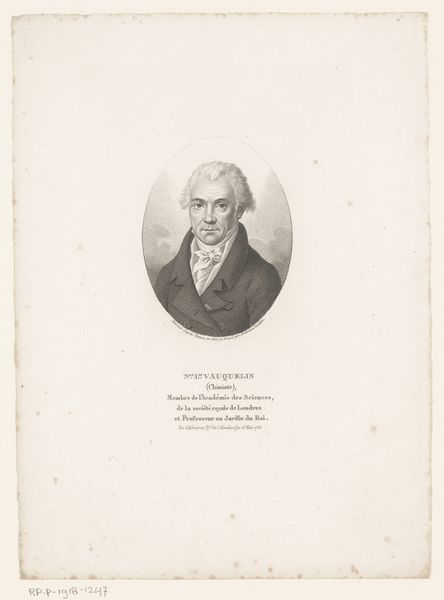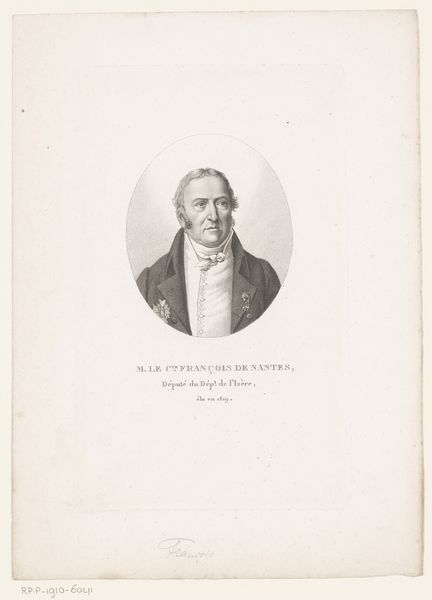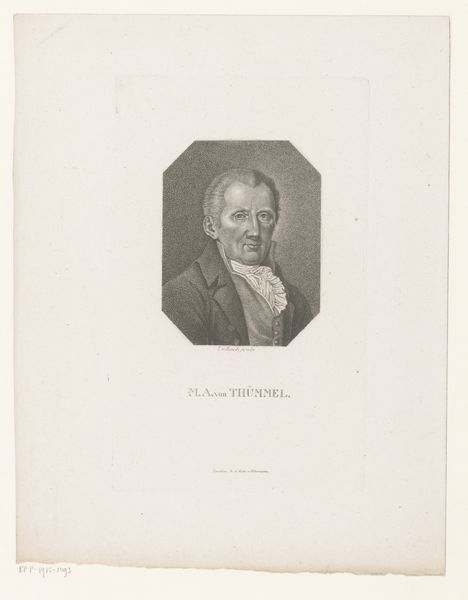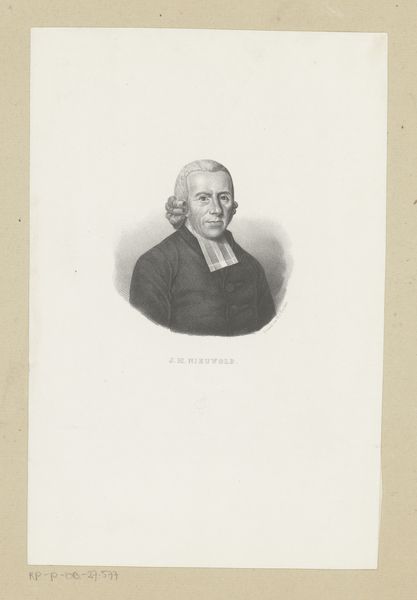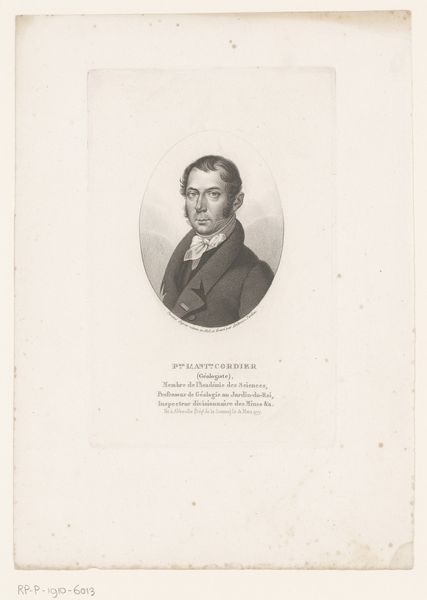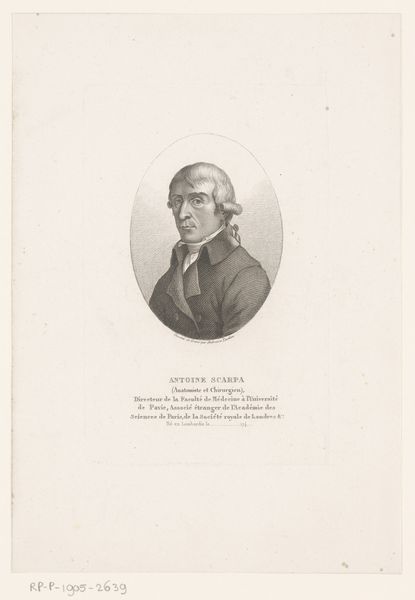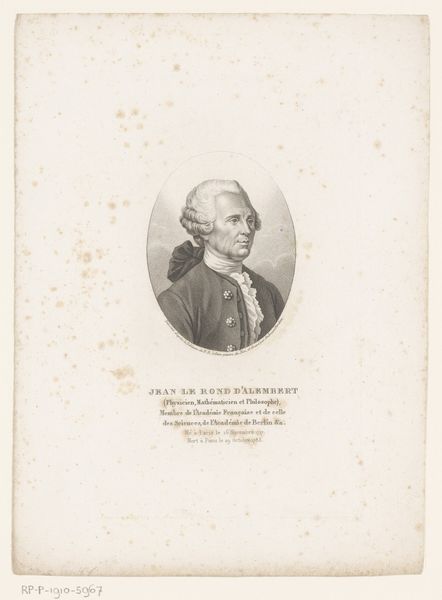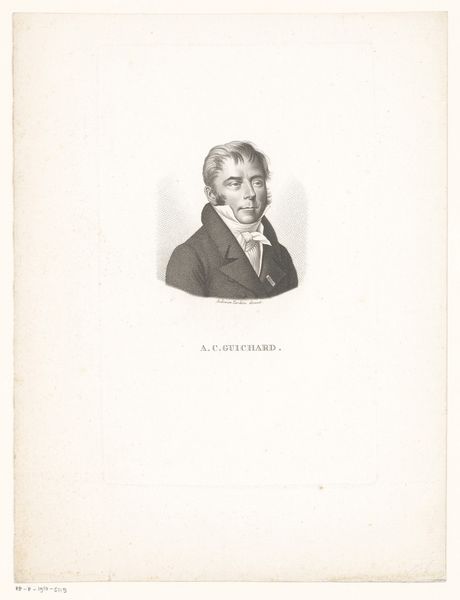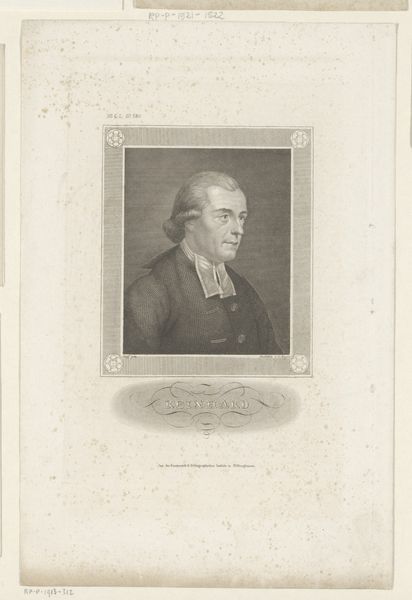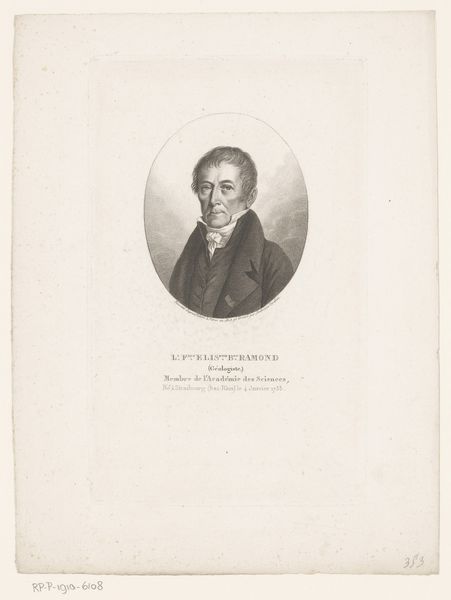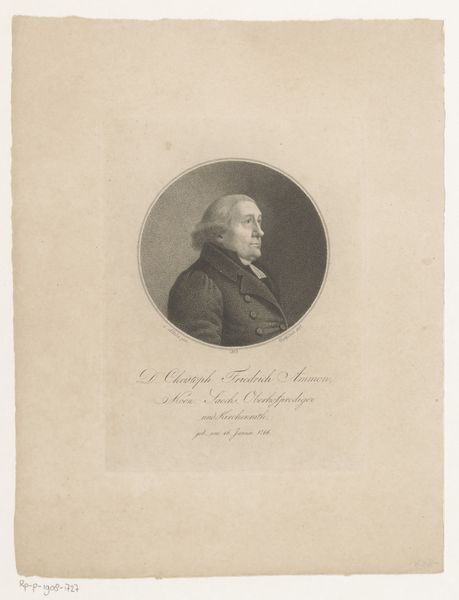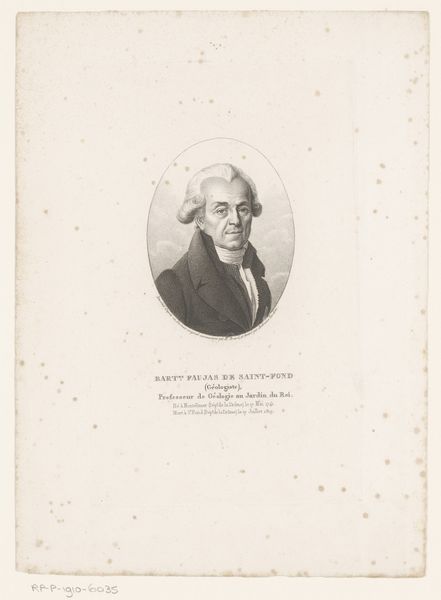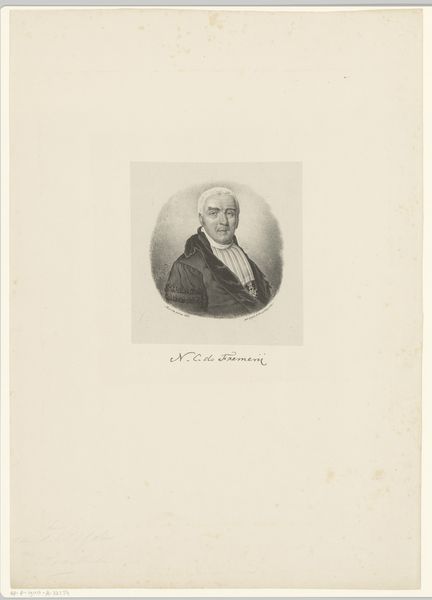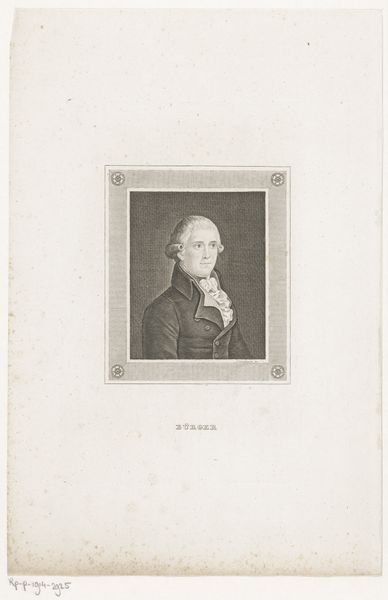
print, engraving
#
portrait
#
neoclacissism
# print
#
engraving
#
realism
Dimensions: height 214 mm, width 125 mm
Copyright: Rijks Museum: Open Domain
Ambroise Tardieu created this print of Charles Dumont de Sainte-Croix in France, during the early 19th century. It embodies the spirit of the Enlightenment, and the rise of scientific inquiry. Dumont, identified here as a zoologist, is presented in a conventional portrait style: an oval frame, bust-length view, and sober attire indicating his status as a learned man. This image creates meaning through established visual codes and cultural references. The portrait's existence speaks volumes about the institutional validation of scientific knowledge. It testifies to the growing importance of science within French society. The French Revolution's emphasis on reason and empirical observation had shifted social values, elevating the role of scientists and intellectuals. Institutions such as the Musée National d'Histoire Naturelle, founded during the Revolution, played a vital role in supporting scientific research and disseminating knowledge. Understanding this print requires us to consider such institutional contexts, as well as the broader intellectual currents of the time. By consulting archival records, scientific publications, and biographical materials, the social history of both the sitter and the artist come into sharper focus.
Comments
No comments
Be the first to comment and join the conversation on the ultimate creative platform.
